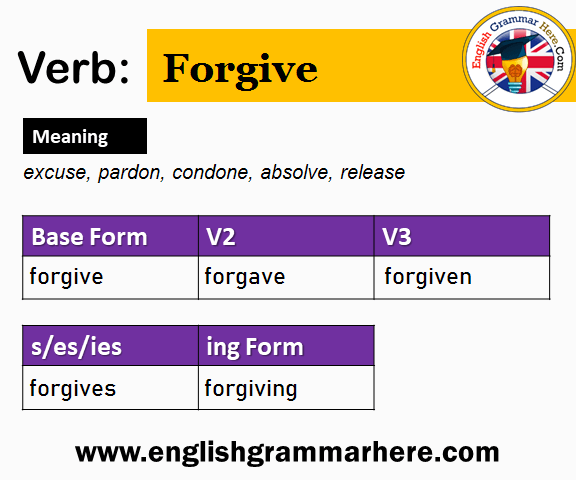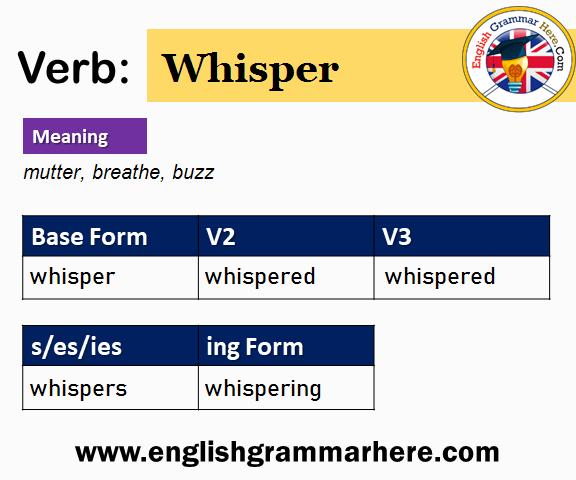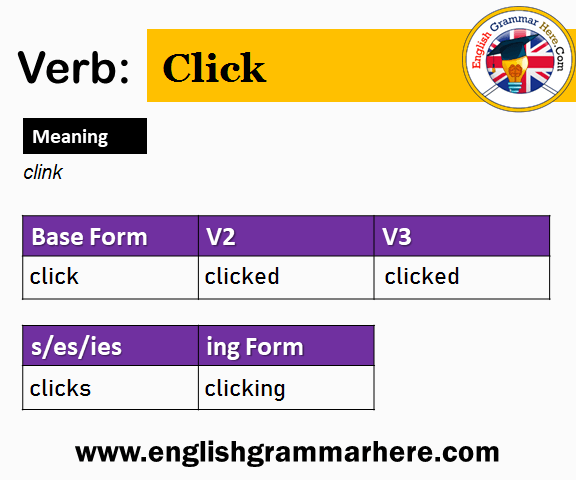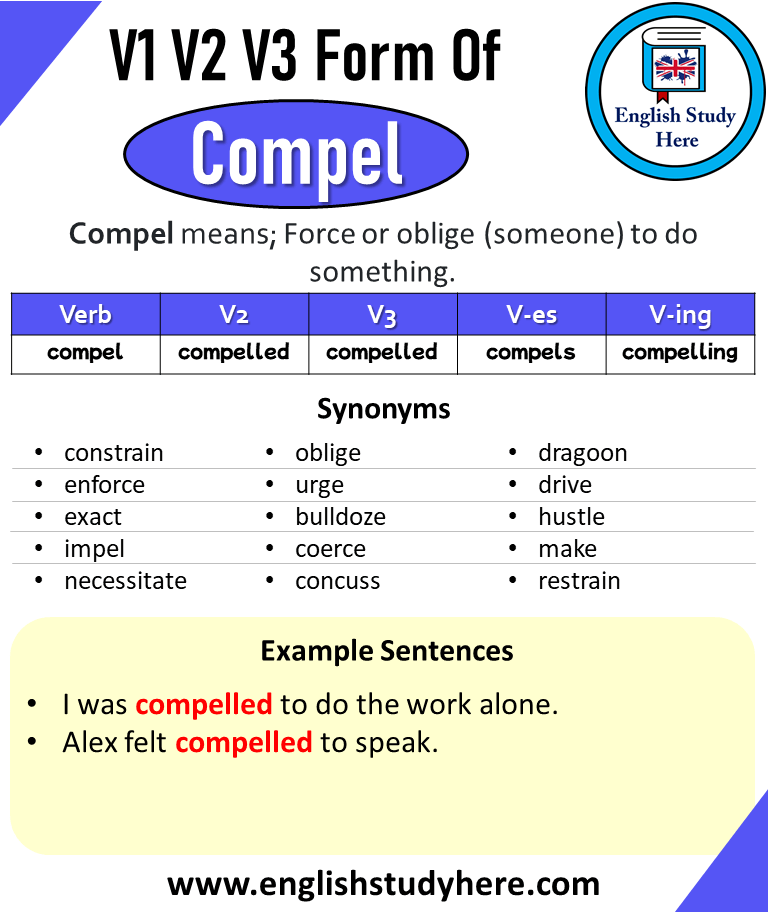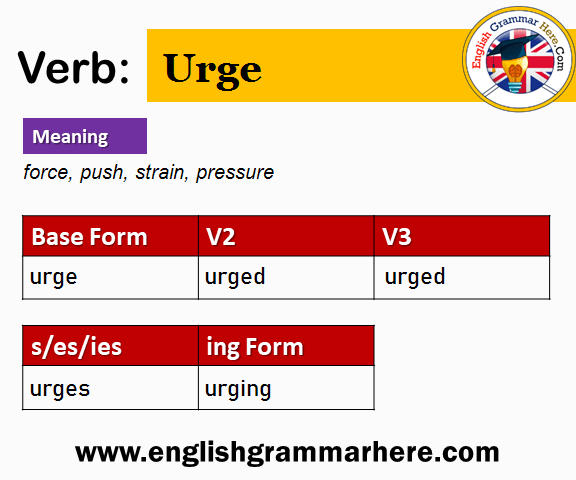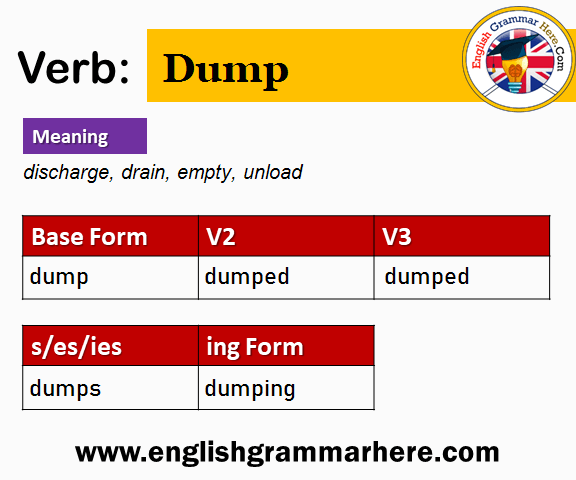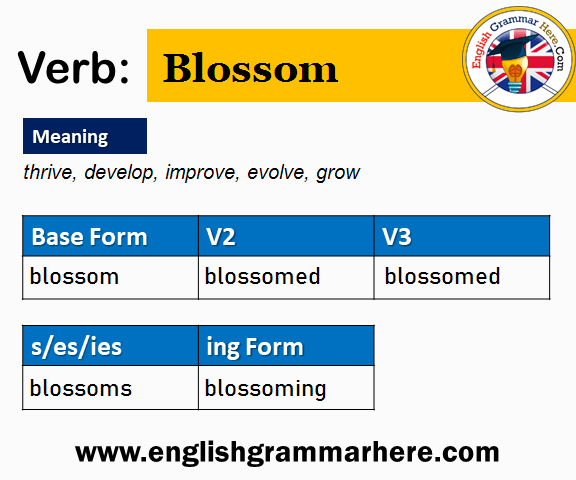Forgive Past And Past Participle Form V1 V2 V3 V4 V5 Form of Forgive
Have you ever found yourself puzzled by the different forms of a verb? You’re not alone.
Understanding verbs and their various forms can sometimes feel like untangling a complex puzzle. Take the verb “forgive,” for example. It’s a word we use often, but do you know its past and past participle forms? Knowing these can enhance your communication skills and boost your confidence in both writing and speaking.
We’ll explore the V1, V2, V3, V4, and V5 forms of “forgive,” unraveling the mystery behind its usage. You’ll discover simple explanations and examples to ensure you have a clear and practical grasp of this essential verb. Stay with us, and you’ll master these forms in no time, making your language skills sharper and more effective.
Forms Of Forgive
The word “forgive”has different forms. Each form is used in various tenses. The base form is V1, which is “forgive”. The past form, V2, is “forgave”. The past participle, V3, is “forgiven”. In the present participle form, V4, it becomes “forgiving”. Lastly, the V5form, which is the simple present tense, is “forgives”.
| Form | Example |
|---|---|
| V1 | forgive |
| V2 | forgave |
| V3 | forgiven |
| V4 | forgiving |
| V5 | forgives |
Learning these forms is easy. Use them to speak correctly. Practice makes perfect. Keep trying!

Credit: www.youtube.com
Past And Past Participle Forms
The word forgivechanges with time. We have different forms. The past formis forgave. The past participleis forgiven. These forms help in writing. Use past forms for past events. Use past participle for completed actions. This makes sentences clear.
The V1 formis forgive. The V2 formis forgave. The V3 formis forgiven. The V4 formis forgiving. The V5 formis forgives. These forms create meaningful sentences.
Usage In Different Tenses
The verb “forgive”can be used in various forms. V1 is “forgive”, V2 is “forgave”, and V3 is “forgiven”. These forms change based on the sentence tense. For example, in the past tense, we say “I forgaveyou yesterday”. In the present perfect tense, we use “I have forgivenyou”.
In simple present tense, it is “I forgiveeasily”. For past, “He forgavehis friend”. In future tense, say “They will forgivehim”. These forms help make sentences clear. Knowing the right form is important.
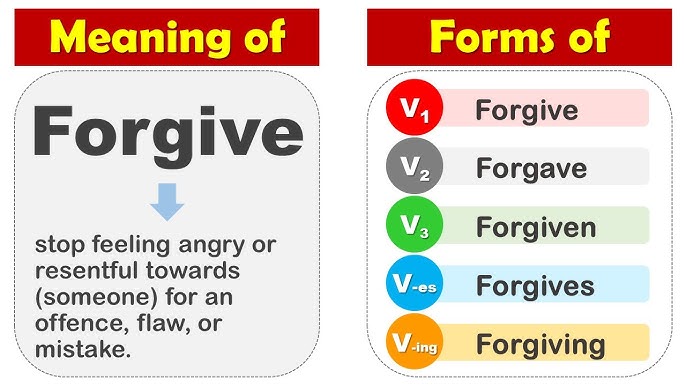
Credit: www.youtube.com

Credit: in.pinterest.com
Conclusion
Understanding the forms of “forgive” can enhance your English skills. V1 is “forgive,” V2 is “forgave,” and V3 is “forgiven. ” Each form has its own use in sentences. Practice makes these forms easier to remember. Use them in conversations to improve fluency.
This knowledge helps in writing and speaking. Learning verb forms is a step to better communication. It’s simple yet vital. Keep practicing these forms. Soon, they will become second nature. With patience, your English will improve. Keep exploring and learning more.
Language learning is a journey, not a destination.
